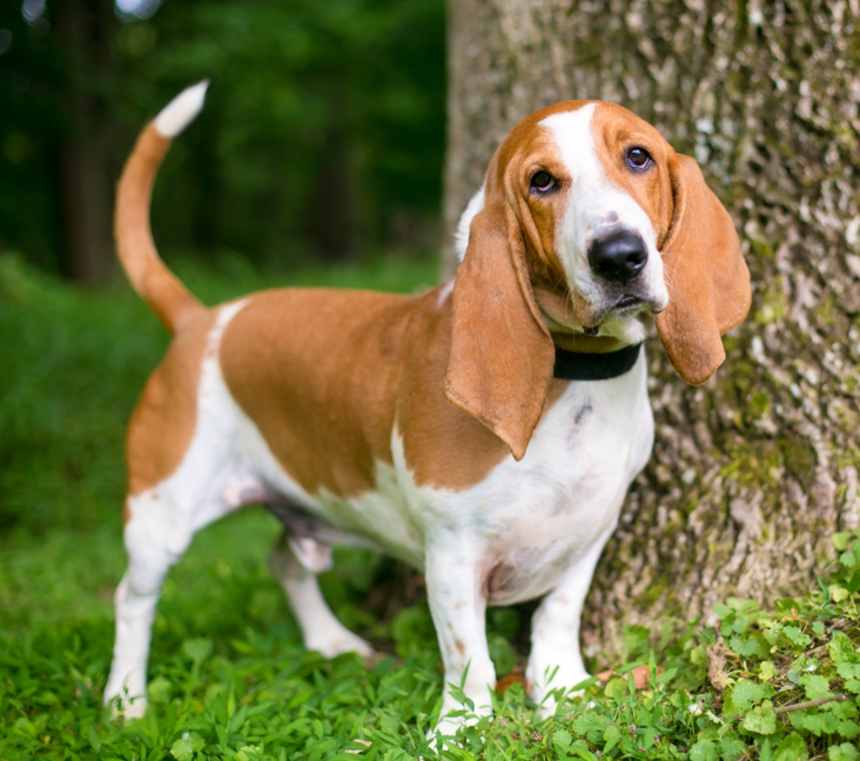Do Basset Hounds have health problems?

Basset Hounds are prone to certain health problems common in the breed, such as:
- Hip and/or elbow dysplasia: Hip and elbow dysplasia are two of the most common skeletal diseases seen in dogs. They are similar diseases in which either the hip or elbow joint has grown abnormally or is misshapen. The abnormal shape prevents the joints and sockets from properly meeting one another, resulting in rubbing and grinding instead of sliding smoothly. Unlike in hip dysplasia, where the main problem is joint instability, the abnormalities seen in elbow dysplasia often result in pieces of bone and/or cartilage breaking loose and irritating the joint tissues. Over time, the rubbing from dysplasia can cause a variety of issues such as pain, lameness and secondary osteoarthritis. Surgery can be done to fix the joint if diagnosed before the onset of arthritis.
- Patellar luxation: Also known as slipped kneecaps, patellar luxation is a common problem in many dog breeds. It occurs when slight abnormalities cause the knee joint to slide in and out of place. This can cause pain and occasional lameness. Surgical treatment is available for severe cases, although many dogs lead normal lives without treatment.
- Eye issues: The droopy eyelids of the Basset Hound make them susceptible to many eye issues, including ectropion, the rolling outward of the eyelid; entropion, a genetic defect where one or both eyelids are inverted or roll inward and rub on the surface of the eye; a condition causing excessive pressure on the eye and making fluid drainage difficult; glaucoma, a condition causing excessive pressure on the eye and making fluid drainage difficult; and cataracts, a common eye condition that causes cloudiness in the eye and obstructs vision.
- Gastric dilatation-olvulus (GDV): GDV, also known as “bloat,” is a condition in which gas or food stretches a dog’s stomach to the point of causing pain. Bloat is usually caused by other underlying conditions.
- Bleeding disorders: Von Willebrand’s Disease (vWD) is the most common inherited bleeding disorder seen in dogs, and happens when a dog does not produce enough of a specific protein that helps the blood cells used in clotting stick together. This results in dogs that are unable to clot properly and could cause hemorrhages or other bleeding issues. Thrombopathia, which affects a dog’s ability to clot properly, is another bleeding disorder that affects Basset Hounds.
- Ear infections: Ear infections are entirely preventable, and the best method to keep your Basset Hound from getting one is to check their ears often, ensure there is no excess moisture, and if needed or recommended by your vet, use a dog ear powder to keep the ears dry.
- Obesity: Obesity in dogs occurs when their weight is at least 30 percent or more above the ideal weight for that animal.